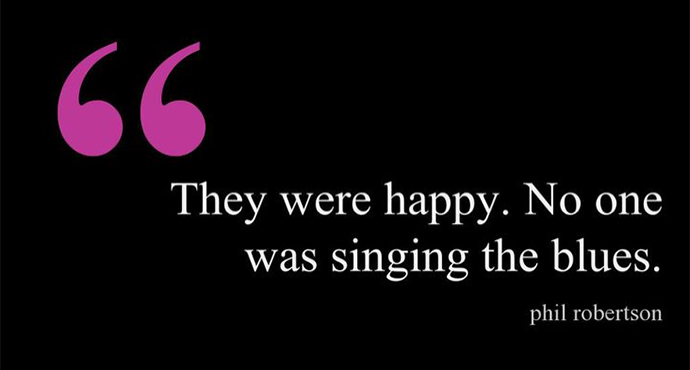It was Phil Robertson’s sincerity that got me. The sense that he really believed what he was saying. That as self-described white trash, he felt a kinship with black farm laborers. That he couldn’t fathom the enormity of the distance between them.
The mere fact that he could sit atop a multimillion-dollar Duck Dynasty was evidence enough of the divide, to me anyway. You see I had taken enough African American studies courses at Harvard to know that the public faces black people showed whites during Jim Crow disguised centuries worth of pain and distrust.
And if that wasn’t enough, I had an 88-year-old grandmother sitting in a Cleveland, Ohio, duplex still shuddering from the memories of her own cotton-picking past who could personally attest to that truth. The truth in which black people were brutalized in the south in ways that aren’t easily resolved—or ignored—even with the passage of time. Ways that can send you running and still haunt you 70 odd years later.
“Wooo,” my grandmother said. “I have a story to tell. I could of written three, four books by now about Alabama. I tell you, it would sell like hotcakes. I ran away at 17 you know. Thank the Lord for that.”
But that’s why we have stories. So that they can multiply. So that we can set them side by side and let them jar against one another until some fresh understanding shakes loose. The facts will always be contested. My version and yours – subjective, like poems and paintings, pointing toward the universal but never grasping it.
But Maya, you may be thinking, I thought this was a blog about women’s pursuits of happiness and meaning? It is. You see, my grandmother leaned in in ways that would defy Sheryl Sandberg’s imagination. The stories she could tell about women, work and the will to lead are extraordinary. They are stories of nigger fountains and great migrations and redlining and white flight. They are stories of courage and fortitude and love. She is happy. She is not singing the blues. Anymore.
I never, with my eyes, saw the mistreatment of any black person. Not once. Where we lived was all farmers. The blacks worked for the farmers. I hoed cotton with them. I’m with the blacks, because we’re white trash. We’re going across the field…. They’re singing and happy. I never heard one of them, one black person, say, ‘I tell you what: These doggone white people’—not a word!… Pre-entitlement, pre-welfare, you say: Were they happy? They were godly; they were happy; no one was singing the blues.
–Phil Robertson quote on growing up in pre-Civil-Rights-era Louisiana, which appeared in the GQ article “What the Duck?”


